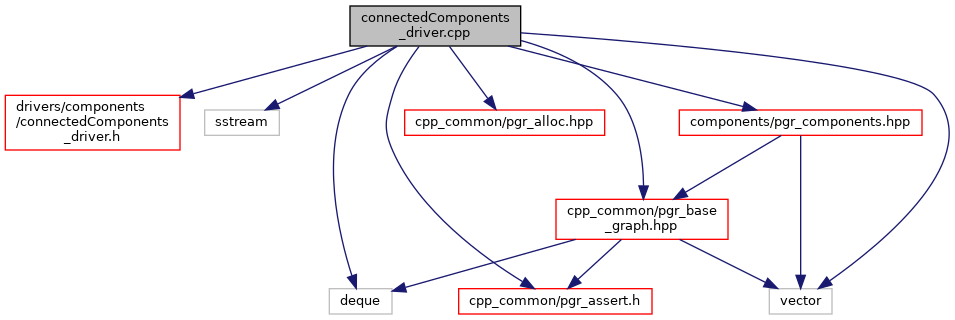 |
PGROUTING
3.2
|
 |
PGROUTING
3.2
|
#include "drivers/components/connectedComponents_driver.h"#include <sstream>#include <deque>#include <vector>#include "cpp_common/pgr_alloc.hpp"#include "cpp_common/pgr_assert.h"#include "cpp_common/pgr_base_graph.hpp"#include "components/pgr_components.hpp"
Go to the source code of this file.
Functions | |
| void | do_pgr_connectedComponents (pgr_edge_t *data_edges, size_t total_edges, pgr_components_rt **return_tuples, size_t *return_count, char **log_msg, char **notice_msg, char **err_msg) |
| void do_pgr_connectedComponents | ( | pgr_edge_t * | data_edges, |
| size_t | total_edges, | ||
| pgr_components_rt ** | return_tuples, | ||
| size_t * | return_count, | ||
| char ** | log_msg, | ||
| char ** | notice_msg, | ||
| char ** | err_msg | ||
| ) |
Definition at line 47 of file connectedComponents_driver.cpp.
References pgrouting::graph::Pgr_base_graph< G, T_V, T_E >::insert_edges(), pgassert, pgr_alloc(), pgrouting::algorithms::pgr_connectedComponents(), pgr_free(), pgr_msg(), UNDIRECTED, and AssertFailedException::what().
Referenced by process().